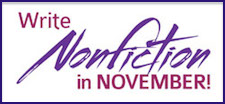 I attend a lot of writers’ conferences, and inevitably, someone will ask the question: Where do you get most of your clients? They mostly want to confirm their hopes that I end up signing more from conferences than from the slush pile, and my answer usually surprises them:
I attend a lot of writers’ conferences, and inevitably, someone will ask the question: Where do you get most of your clients? They mostly want to confirm their hopes that I end up signing more from conferences than from the slush pile, and my answer usually surprises them:
I have signed and sold by far more from the slush than I have from anywhere else.
Yes, it really does work to seek an agent through normal channels using longstanding industry practices. The query letter, writing samples, submission guidelines—the whole process exists for a reason.
However, that is not at all the only method that has worked for me, and I have a few clients on my list that I came to sign through less than conventional means. Here are two examples:
Nina Amir. A great one to start with, yes? Nina and I had known each other for a little while. Sort of a round-about case in support of those hopeful writers, Nina and I were both annual presenters at the San Francisco Writers’ Conference, and we have over the years met several times and accumulated a fine roster of mutual friends, including her now former agent. Several months ago, with the blessing of said agent, Nina approached me about brainstorming her desired new career path for her writing. She was a longtime hybrid author with a lot of potential material, and I had just founded a hybrid agency that takes a very involved, long-term career focus with our clients. We were a natural fit. She had a lot of content, a working brand, a clear goal, and a rough plan that needed the kind of guidance that I specialize in providing. She showed me that she is a business-savvy author and one who is willing and able to accomplish her rather lofty goals if given the proper chance and support.
Kelsye Nelson is another fairly new client of mine. She was another one of those writers who was “always around” because of her active presence in her community. Unlike Nina, though, Kelsye lives in a different state, and at the time, we had never met. The community, in her case, was online. Kelsye was known for bringing writers together on the internet and helping authors in need by connecting them with quality advice and assistance. An established platform, however, does not necessarily mean that I’d be interested or that the author in question would be a good fit for what I represent. But then one day I happened upon a tweet about a Kickstarter campaign for a book that would be perfect for my list. I clicked through, and there was Kelsye. Checking out the campaign confirmed my desire to represent that book (and also showed how she was accounting for areas of her platform that needed work). Clicking through to her website showed her well-managed online hub and allowed me to more accurately measure her presence. Clicking through from her website, I was able to read the short pieces she had published on Kindle and more accurately measure her writing skills, tone, and audience fit. And when we finally did talk, we communicated very well, our publishing philosophies matched, and I learned what an agent always loves to hear—she had other projects in the works that would continue building on the brand she was establishing. Brilliant. And speaking of using the internet to make yourself heard, via her blog feed you can read about the experience from Kelsye’s point of view.
Other examples of less than conventional client introductions include MariNaomi, whom I first “met” through Twitter; Kelly Davio, the writing partner of one of my clients (an often overlooked benefit of having a writing partner or critique group); and Kyle Cassidy, whose work I first saw when his photo essay about librarians went viral. Of the three, however, Kyle was the only one I signed without first going through the standard query/submission process. Yes, there are a lot of ways to attract an agent, but one of the best is still writing that killer query letter followed by an equally stunning manuscript or book proposal. So, hone your craft, submit your work, and get noticed!
Resources
 |
The Short Fuse Guide to Query Letters (Short Fuse Guides Book 1) |
 |
The Short Fuse Guide to Book Proposals (Short Fuse Guides 2) |
About the Author
 Gordon Warnock is a founding partner at Fuse Literary, serving as a literary agent and Editorial Director of Short Fuse Publishing. He brings years of experience as a senior agent, marketing director, editor for independent publishers, publishing consultant, and author coach. He frequently teaches workshops and gives keynote speeches at conferences and MFA programs nationwide.
Gordon Warnock is a founding partner at Fuse Literary, serving as a literary agent and Editorial Director of Short Fuse Publishing. He brings years of experience as a senior agent, marketing director, editor for independent publishers, publishing consultant, and author coach. He frequently teaches workshops and gives keynote speeches at conferences and MFA programs nationwide.
With a zest for fresh, new stories and a deep love of the classics, Gordon actively seeks out both the timely and the timeless. In that spirit, he establishes involved, long-term working relationships with talented and dedicated authors of many genres. Read more about what he represents and how to submit at: http://www.fuseliterary.com/gordon-warnock
Photo courtesy of stockimages | Freedigitalphotos.net. Amazon links contain my afflilate code.

SJ Francis says
Great post with valuable information! Thanks for sharing with us.
Regards,
S.J. Francis